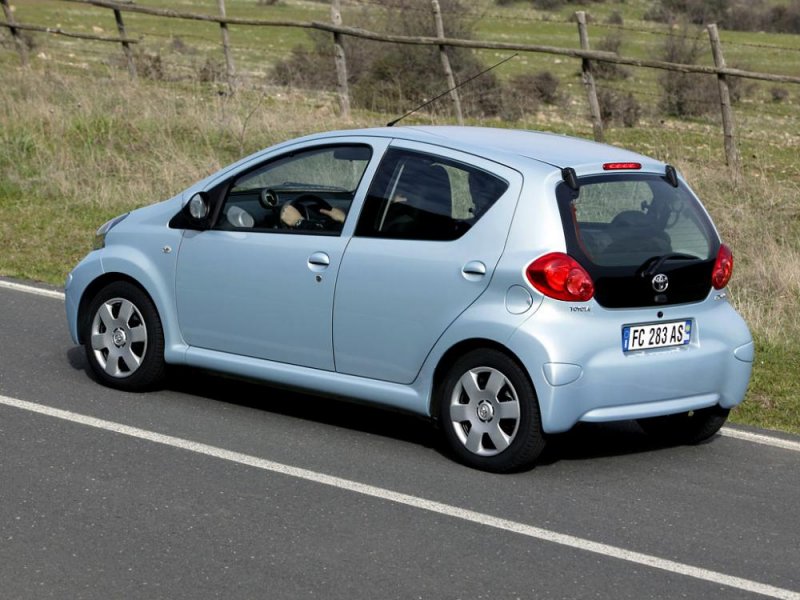Toyota sued in California by U.S. shareholders
Toyota faced its first U.S. class-action lawsuits stemming from complaints of faulty brakes in its top-selling Prius hybrid car and from investors claiming they were misled about problems with unintended acceleration in a wide range of models.
Litigation mounted as the Japanese automaker prepared to follow global recalls of some 8 million vehicles for repairs to ill-fitting floor mats and sticking gas pedals with yet another recall to deal with braking problems in the new Prius model.
A class-action suit filed on Monday on behalf of U.S. shareholders accuses Toyota Motor Corp of issuing "materially false and misleading statements" about its "operations, its business and financial results and outlook."
The 42-page suit, filed in U.S. District Court in Los Angeles, said the car company "misled investors by failing to disclose that there was a major design defect in Toyota's acceleration system, which could cause unintended acceleration."
The suit covers buyers of publicly traded Toyota stock, including American Depositary Shares, between Aug. 4, 2009, and Feb. 2, 2010.
"As a result of defendants' false statements, Toyota's securities traded at artificially inflated prices during the class period, reaching a high of $91.78 per ADS on Jan. 19, 2010," the suit states.
Toyota's American Depositary Receipt closed Monday at $72.85, down 2.5 percent.
Toyota last week reported that its U.S. sales for January plunged 16 percent compared with the same month a year ago due to the recalls and subsequent suspension of sales of its eight most popular models.
The following day, share prices fell on word from Toyota that it had received reports of brake problems in its 2010 Prius, an issue that sparked a class-action suit in Los Angeles County Superior Court on Friday.
It seeks unspecified monetary damages and a court order requiring repairs to a braking defect that the named plaintiff, Elaine Miller, says makes driving her Prius dangerous.
Miller's lawyer, Daniel Warshaw, said on Monday he is seeking class-action status in California for all affected owners of the 2010-year Prius and the 2010 Lexus HS250h hybrid, which he said is equipped with the same braking system.
"The crux of the (suit) is to get these vehicles fixed and safe," he told Reuters.
Toyota has declined to comment on any of the pending litigation against it.
At least 30 class-action cases have been brought against the company over its recent troubles. But the shareholders suit and Prius case are believed to be the first of their kinds in a flood of litigation that legal experts foresee in the coming weeks and months.
PUTTING ON THE BRAKES
The Prius lawsuit says the cars "suffer from a material defect" in their "regenerative braking system" -- designed to recycle kinetic energy from the friction of slowing the car -- that causes the brake system "to routinely and systematically disengage."
Warshaw said he brought the suit in California because the state has some of the nation's toughest consumer protection laws and because Toyota's U.S. operations are based there.
Warshaw said the braking problem, apparently rooted in a computer software glitch, is most pronounced when trying to slow down or stop the vehicle on bumpy or slippery roads.
The National Highway Traffic Safety Administration, which is investigating the issue, has listed 124 such braking complaints from consumers since Feb. 3, including four reports of accidents, two of them said to have resulted in injury.
The suit suggests that tens of thousands of vehicles may be affected. The bulk of some 103,000 model-year 2010 Prius cars sold in the United States are in California, Warshaw said.
Toyota acknowledged it was aware of a braking problem and sought to fix it in production with a software adjustment starting in January, but 2010 models that rolled off the assembly line before that were sold without the change.
The 2010 model Prius was introduced in the United States in May 2009.
"We don't even know if the (production) fix was effective," Warshaw said. "They're required to issue a technical service bulletin" (to repair cars) but "that was never done."
The Prius has been the world's best-selling hybrid vehicle, helping Toyota grab 70 percent of the U.S. market for vehicles powered by a combination of an external-combustion engine and electric motor.


![Wink [;)] [;)]](https://www.theautomotiveindia.com/forums/images/smilies/Wink.gif)



![Surprise [surprise] [surprise]](https://www.theautomotiveindia.com/forums/images/smilies/Surprise.gif)